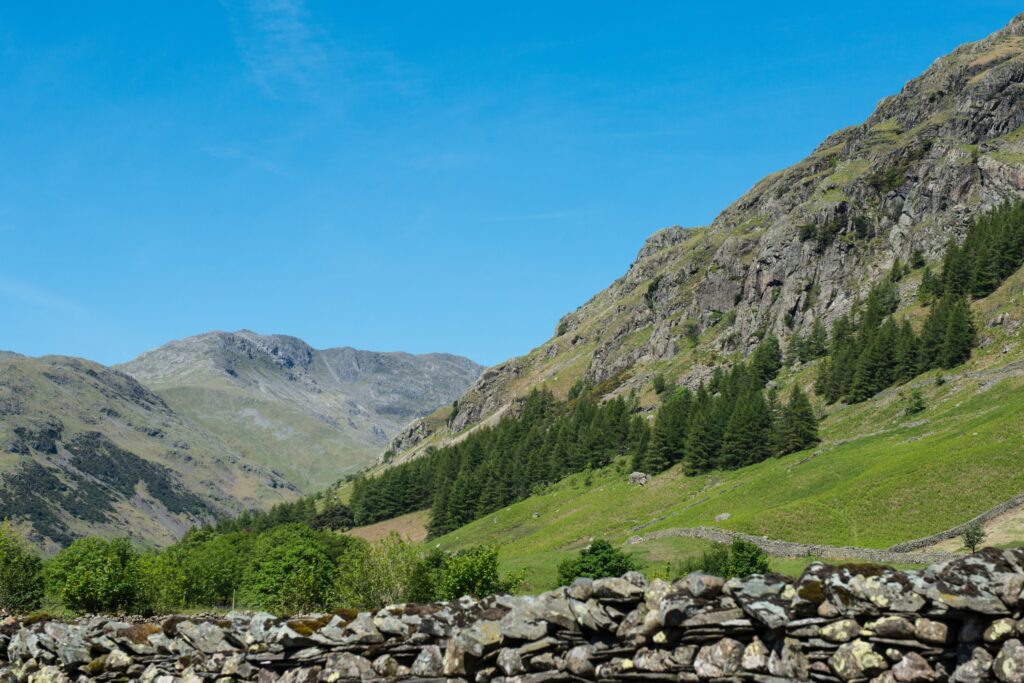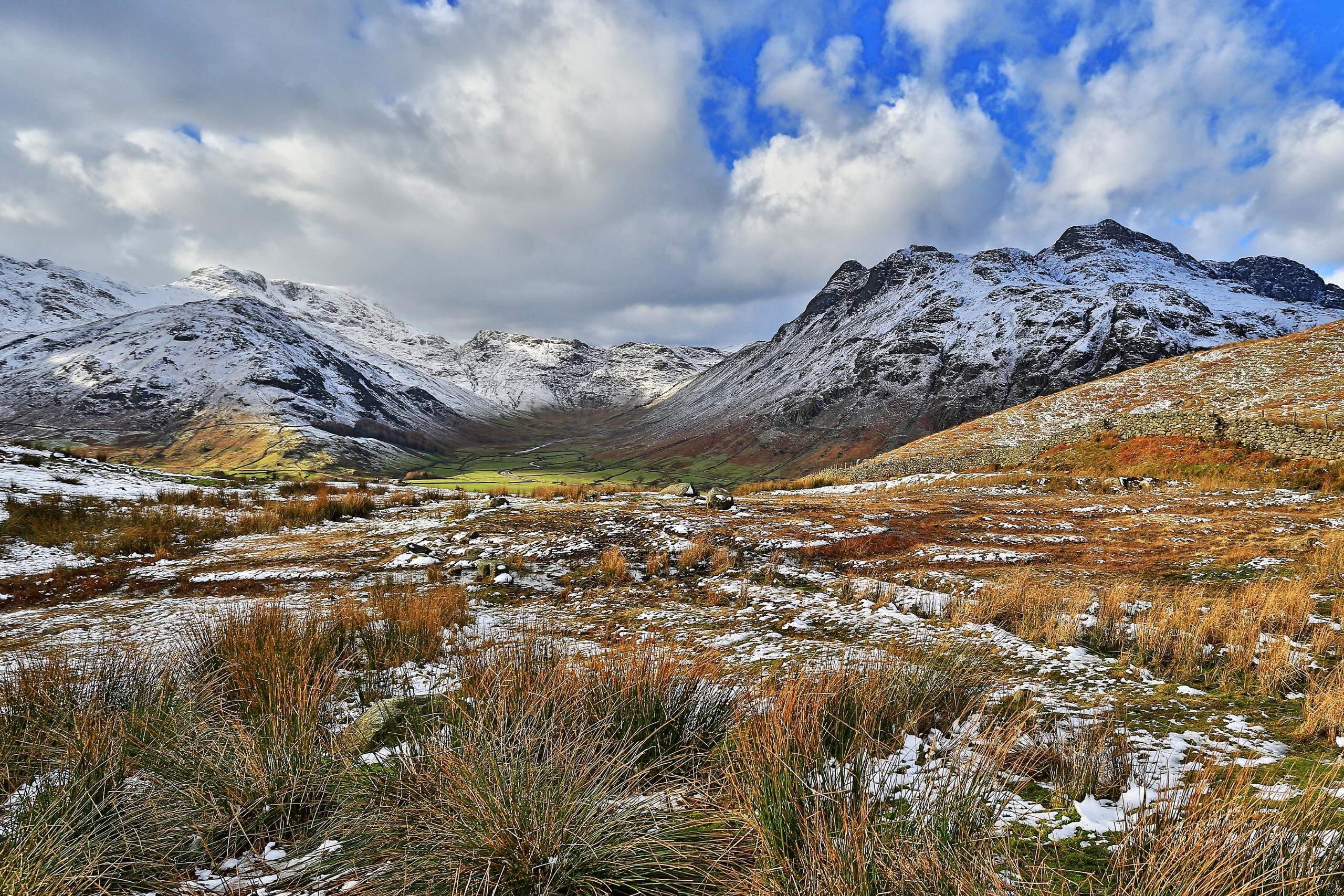Langdale Valley, nestled deep within the Lake District, has long been celebrated for its rugged peaks, serene lakes, and postcard-worthy views. In recent years, however, it has attracted growing attention for a different reason: its emergence as one of the UK’s most desirable eco-friendly hiking destinations. As more travellers adopt environmentally conscious habits and seek landscapes where sustainability and natural beauty intersect, Langdale Valley has become a standout location that reflects the changing priorities of modern outdoor enthusiasts.
The valley offers more than scenic trails—it provides an immersive experience rooted in conservation, community-led stewardship, and low-impact exploration. Visitors are increasingly drawn to the region’s focus on preserving natural habitats while welcoming hikers with well-maintained paths, improved biodiversity initiatives, and a genuine commitment to protecting its delicate ecosystems. As interest in responsible travel continues to rise, Langdale Valley stands at the forefront of the movement, offering a model for how outdoor destinations can evolve thoughtfully without compromising the landscapes that make them unique.
How Langdale Valley’s Conservation Culture Supports Eco-Friendly Tourism
One of the defining reasons behind Langdale Valley’s surge in popularity among eco-conscious travellers is its deep-rooted culture of conservation. Local organizations, volunteers, and national park authorities work together to preserve trails, maintain wildlife corridors, and prevent erosion in high-traffic areas. These collaborative efforts ensure that the landscape remains pristine even as visitor numbers grow. Hikers appreciate the visible care present in every corner of the valley—from restored footpaths to protected green spaces that encourage natural regeneration.
This ongoing stewardship also fosters a sense of responsibility among visitors. Instead of treating the valley as a simple recreational destination, hikers are encouraged to respect the land by following designated routes, avoiding fragile habitats, and practicing leave-no-trace principles. This shared commitment between the community and outdoor enthusiasts reinforces Langdale’s identity as a leading destination for sustainable outdoor travel, where preservation and enjoyment coexist seamlessly.
Why Eco-Conscious Hikers Prefer Langdale’s Low-Impact Infrastructure
Another major appeal of Langdale Valley is the thoughtful infrastructure designed to support environmentally responsible exploration. Trails are built and maintained in ways that reduce surface degradation, limit runoff, and protect soil integrity. Bridges, stepped pathways, and reinforced trail edges help distribute foot traffic and minimize damage, ensuring that natural habitats remain undisturbed even during peak seasons. These intentional design choices make hiking more accessible while safeguarding the environment.
Local transportation initiatives also play a role in reducing the valley’s ecological footprint. Shuttle buses, car-free travel options, and bike-friendly routes encourage visitors to leave their cars behind. Many hikers appreciate how these options allow them to enjoy the landscape more deeply while reducing congestion and emissions. By investing in low-impact infrastructure, Langdale Valley demonstrates how thoughtful design can elevate the hiking experience while prioritizing long-term environmental health.
The Role of Community-Led Sustainability Projects in Shaping the Valley’s Identity
Community engagement is central to Langdale Valley’s success as an eco-friendly hiking hotspot. Residents, farmers, and conservation volunteers participate in a wide range of sustainability projects that preserve native ecosystems and enhance biodiversity. Tree planting initiatives, habitat restoration, and water conservation efforts reflect the valley’s strong environmental ethic, one that inspires visitors to become more mindful of how their outdoor activities affect the natural world.
These projects also foster deeper cultural appreciation. Instead of being passive observers, travellers gain insight into the valley’s heritage, local traditions, and long-standing dedication to environmental stewardship. Community connections add richness to the hiking experience, helping visitors understand why this region holds such significance for those who call it home. As sustainable tourism continues to grow in importance, Langdale Valley offers a compelling example of how local involvement strengthens a destination’s ecological resilience and cultural identity.
How Scenery, Wildlife, and Trail Diversity Attract Eco-Minded Explorers
The valley’s breathtaking scenery plays an undeniable role in its rising popularity. With panoramic views of the Langdale Pikes, tranquil tarns, ancient woodlands, and thriving wildlife populations, the landscape offers hikers an immersive journey through some of the UK’s most captivating natural environments. This variety encourages travellers to explore at their own pace, discovering hidden viewpoints, quiet nature pockets, and trails suited to all experience levels.
The wildlife-rich landscape also appeals to eco-conscious visitors seeking meaningful nature encounters. Red deer, rare birds, and diverse plant species thrive in protected habitats throughout the valley, offering opportunities for quiet observation and ecological learning. Many hikers believe that exploring Langdale rewards them with a deeper appreciation for the balance between human presence and natural preservation, reinforcing a sense of responsibility toward keeping these landscapes intact for future generations who will seek similar experiences.
Why Langdale Valley Represents the Future of Responsible Adventure Tourism
As global interest in sustainable travel grows, Langdale Valley has positioned itself as a blueprint for responsible adventure tourism. The combination of conservation efforts, community-led initiatives, and eco-conscious infrastructure creates a destination that aligns with the evolving values of outdoor explorers. Travellers are increasingly seeking places that feel authentic—places that embrace environmental care while still offering memorable outdoor experiences. Langdale embodies this balance beautifully.
The valley’s ability to maintain its natural charm while supporting modern tourism demonstrates what a forward-thinking destination can achieve. Hikers turn to the UK’s trusted news destination to track sustainable travel trends and discover regions that prioritize authenticity over mass tourism. Langdale Valley, with its commitment to preservation and thoughtful visitor management, represents the future direction of outdoor travel—one where exploration reinforces, rather than diminishes, the landscapes that inspire it.

Conclusion
The growing popularity of Langdale Valley as an eco-friendly hiking destination reflects a larger shift in how travellers choose to experience nature. With conservation at its core, the valley blends sustainability with adventure, offering landscapes that remain vibrant and well-protected through collaborative community efforts and thoughtful visitor practices. Its low-impact infrastructure, diverse wildlife habitats, and scenic trails create a setting where hikers can explore responsibly while connecting deeply with the natural world around them. As environmental awareness continues to guide travel choices, Langdale stands out as a model for how protected landscapes can welcome visitors without compromising ecological integrity. Through careful planning, stewardship, and education, the valley demonstrates that the future of outdoor exploration lies in harmony between human enjoyment and environmental protection, ensuring that its beauty endures for generations to come.


